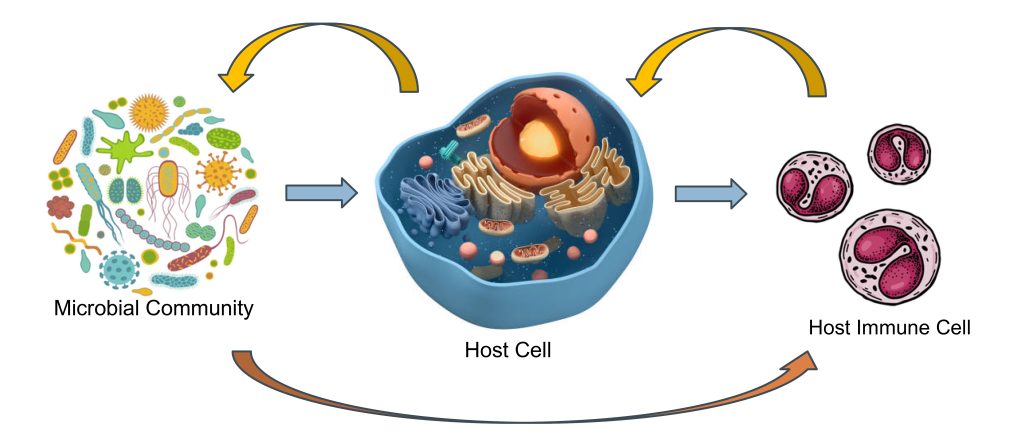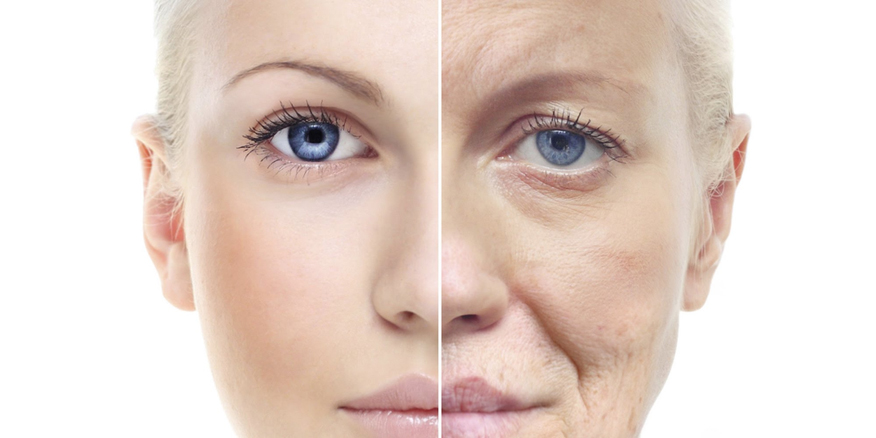The Skin Microbiome and Leaky Skin


Article written by Morgan Giusto
Co-founder and COO of SIV
Published 1 December 2024
People take supplements to improve or optimize their health. So what happens when you look at the label, and the ingredient list is filled with unrecognizable additives?
Our bodies are covered by approximately 2 square metres of skin, making it one of the largest organs in our system. On our skin, we host over 1.5 trillion resident bacteria, representing up to 1,000 different species. The most common bacterial genera found on the skin include Propionibacterium, Corynebacteria and Staphylococci.
The skin is home to both transient and resident microbes. Transient microbes may only remain on the skin for hours or days, while resident microbes are more permanent. However, even though transient microbes are temporary, they can still influence the balance of the resident microbial community. When this balance is disrupted, it can lead to “leaky skin,” a compromised skin barrier that drives systemic inflammation and accelerates skin ageing.
The Skin Microbiome: A Guardian of the Skin Barrier
The skin microbiome acts as the first line of defence against environmental aggressors such as pathogens, allergens, and toxins. It maintains skin health by regulating immune responses, maintaining moisture, and preventing the overgrowth of harmful microorganisms. A balanced skin microbiome promotes a strong skin barrier, which serves as a shield that keeps moisture in and harmful elements out.
However, factors such as pollution, harsh skincare products, UV exposure, stress, and even poor diet can disrupt this microbiome. When the microbiome is imbalanced – referred to as dysbiosis – the skin’s barrier becomes compromised, leading to a cascade of negative effects, including leaky skin.
The disruption of the skin’s ecological balance is the primary factor leading to changes in both the appearance and function of skin cells. This imbalance is a key driver of skin ageing and various skin disorders. Contributing factors include age, gender, genetics, environmental influences (such as pollutants and ecosystems), climate, cosmetics, diet, hormones, immune function, lifestyle and gut health.
As the skin microbiome shifts, it affects the interaction between the host and its microbes, influencing the ageing process. The host’s immune system regulates the microbial community, and in turn, the composition of this community significantly impacts the immune system. This interplay between the immune system and the microbiome affects host cell function, particularly in skin cells, where we observe classic signs of ageing and inflammatory conditions.
Leaky Skin: The Compromised Barrier
Simply put, “leaky skin,” is the term for a dysfunctional skin barrier triggered by skin microbiome dysbiosis. Leaky skin refers to the breakdown of the skin’s barrier function, allowing harmful substances to penetrate through the skin. This condition starts with an impaired skin microbiome, which triggers a weakening of the junctions between skin cells. These junctions are responsible for maintaining the skin’s structural integrity, and when they are compromised, the skin barrier becomes porous, allowing water to escape and harmful elements to infiltrate.
One of the major consequences of leaky skin is trans-epidermal water loss (TEWL), where the skin loses essential moisture, becoming dehydrated, dry, and prone to irritation. This dehydration weakens the skin’s ability to defend itself, making
it susceptible to infections, inflammation, and damage from external factors.
Studies show that if our skin microbiome is dysbiotic, it can physically degrade the skin barrier, eating away at essential lipids in the skin and eliciting inflammation along the way. One of the most well-documented examples of this comes
from the interaction between Staphylococcus aureus and its effects on ceramide and filaggrin levels. Most of this data has been harvested from patients with Atopic Dermatitis, which is an inflammatory skin condition with strong ties to skin microbiome dysbiosis and skin barrier impairment.
Various studies have shown that S. aureus prompts skin to produce cytokines that degrade barrier integrity and enhance barrier degradation. The ability of S. aureus to penetrate the epidermis is also superior to other bacterial species, as shown in various tape-stripping experiments. Advanced S. aureus colonisation is also found in cases of impaired filaggrin expression. Filaggrin is an important protein in the skin that binds keratin fibres in skin cells. Lack of filaggrin is another hallmark of atopic skin and linked to an abundance of S. aureus in the skin microbiome. Lack of filaggrin also enhances S. aureus’s ability to penetrate and cause further damage to the skin barrier.

As the skin microbiome changes, it alters the relationship between the host and the microbes and thereby impacts host ageing and life expectancy.
The Role of Bacillus Spores in Skin Health
Bacillus spores, a type of beneficial bacteria, are emerging as key players in skin health. These hardy spores thrive in diverse environments and possess potent probiotic properties that can enhance the skin microbiome. When applied topically, Bacillus spores help restore microbial balance, which is crucial for maintaining a robust dermal barrier. They produce antimicrobial compounds that reduce harmful bacteria and support inflammation control. Additionally, Bacillus spores contribute to moisture retention, improving skin hydration and resilience. By fostering a healthy microbiome, these spores play an essential role in preventing conditions like leaky skin and promoting overall skin vitality.
Quorum Sensing and its Role in Skin Health
Quorum sensing is a crucial mechanism for Bacillus spores, enabling them to communicate and coordinate activities based on population density. This process facilitates effective collaboration amongst the spores, allowing them to form biofilms to enhance their protective capabilities. By utilising quorum sensing, these beneficial spores optimise their function by producing antimicrobial compounds, regulating inflammation and maintaining the integrity of the epidermal barrier. This cooperative behaviour is essential for sustaining a balanced skin microbiome, ultimately contributing to a resilient and robust skin barrier that shields against environmental stressors and promotes overall skin health.
The Benefits of Balance
A healthy, balanced skin microbiome is vital for optimal skin health, particularly with the presence of Bacillus spores. These beneficial spores actively contribute to maintaining this balance in several ways:
- Pathogen Prevention: Bacillus spores help prevent the overgrowth of harmful bacteria, reducing toxin production and minimising immune cell recruitment.
- Enzyme Production: They support the production of key enzymes, such as proteases, which aid in the turnover of the stratum corneum, promoting skin renewal.
- Lipid Regeneration: Bacillus spores assist in producing lipases, crucial for breaking down and regenerating the skin’s lipid layer, enhancing barrier function.
- pH Regulation: They contribute to the production of urease and free fatty acids, helping to regulate sebum production and maintain skin pH.
- Effective Quorum Sensing: Through their communication mechanisms, Bacillus spores perform effective quorum sensing and biofilm production, which enhances their protective capabilities.
- Antioxidant Defence: They drive antioxidant functions that help neutralise free radicals, reducing oxidative stress on the skin.
Ultimately, a balanced microbiome leads to a more resilient skin barrier capable of withstanding negative stimuli, resulting in healthier, stronger skin that functions effectively. This balance reduces reactivity and sensitivity while diminishing the appearance of inflammatory conditions like acne, eczema, psoriasis and rosacea. Maintaining this equilibrium is crucial; when disrupted, it can lead to leaky skin, triggering inflammation and accelerating the ageing process. By nurturing the skin microbiome with Bacillus spores and reinforcing the skin’s barrier function, we can break the cycle of dysfunction, promoting healthier and more resilient skin.

Leaky skin can accelerate the ageing process.
Share:
Related Posts

Benefits of Creatine in Perimenopause and Menopause
Written by Maura MacDonald, MS, RD, CSSD | 2025 As we age, the notion is that we will inevitably become weaker. Not as mobile as

Goodbye Pie Chart, Hello Phase 1 Sliders
Written by Allison Smith, ND | 2025 As we usher in a new era of DUTCH testing which leaves behind the concept of the three-way

Introducing the DUTCH Dozen
Written by Kelly Ruef, ND | 2025 Hormone testing can be complex, which is why Precision Analytical developed the DUTCH Dozen, an interpretive framework that

DUTCH Report Enhancements
Written by Hilary Miller, ND | 2025 Precision Analytical have released the newest version of the DUTCH Test. This is the report’s most significant update

Gallbladder Health 101: What It Does and How to Keep It Working Well
Written by Ashley Palmer & Pooja Mahtani | 2025 The gallbladder may not get much attention compared to the gut, but it plays a central
